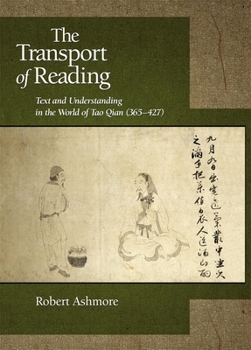The Transport of Reading: Text and Understanding in the World of Tao Qian (365-427)
(Book #327 in the Harvard East Asian Monographs Series)
For centuries, readers of Tao Qian have felt directly addressed by his poetic voice. This theme in the reception of Tao Qian, moreover, developed alongside an assumption that Tao was fundamentally misunderstood during his own age.
This book revisits Tao's approach to his readers by attempting to situate it within the particular poetics of address that characterized the Six Dynasties classicist tradition. How would Tao Qian have anticipated that his readers would understand him? No definitive answer is knowable, but this direction of inquiry suggests closer examination of the cultures of reading and understanding of his period. From this inquiry, two interrelated groups of problems emerge as particularly pressing both for Tao Qian and for his contemporaries: first, problems relating to understanding authoritative texts, centered on the relation between meanings and the outward "traces" of those meanings' expression; second, problems relating to understanding human character, centered on the unworldly scholar--the emblematic figure for the set of values often termed "eremitic."Format:Hardcover
Language:English
ISBN:0674053214
ISBN13:9780674053212
Release Date:November 2010
Publisher:Harvard University Press
Length:275 Pages
Weight:1.45 lbs.
Dimensions:1.2" x 6.1" x 9.0"
Customer Reviews
0 rating





